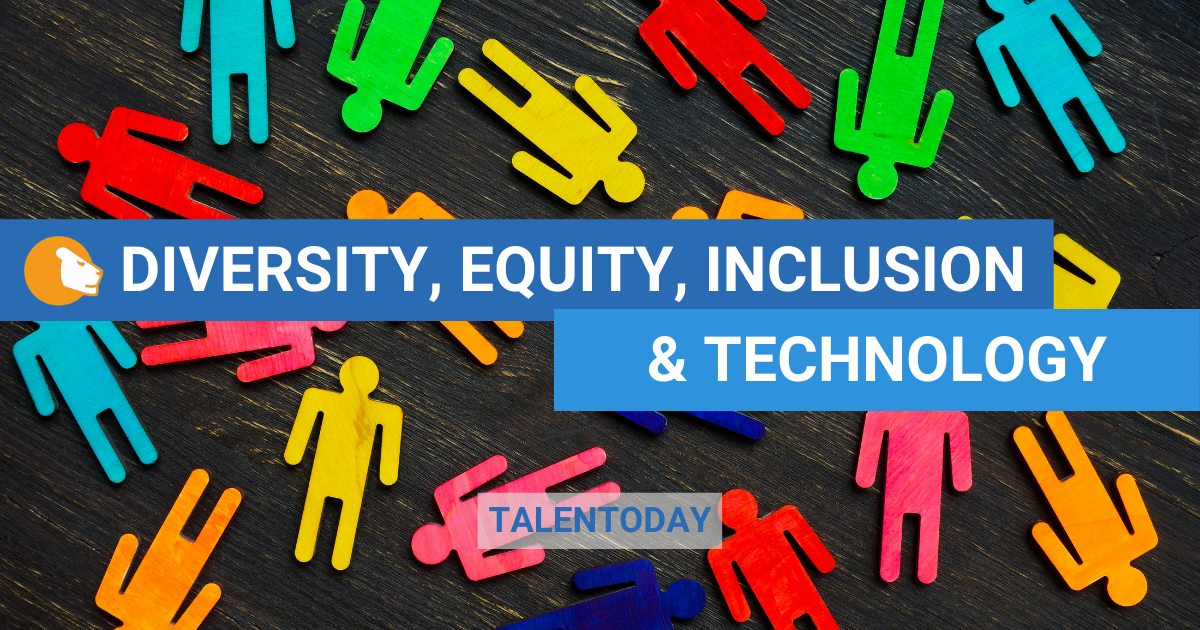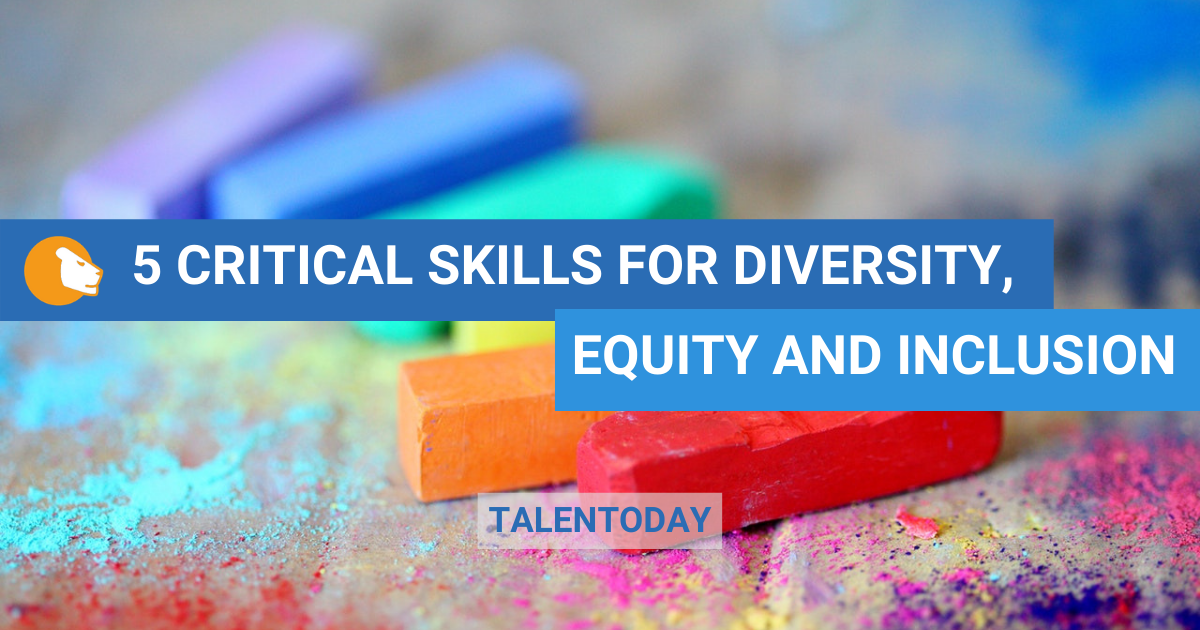Social Awareness in the Workplace: Do You Have These 5 Critical Skills for Fostering Diversity, Equity and Inclusion?
Following the mass protests and grassroots social movements that have come to define the summer of 2020, many businesses felt compelled to speak up and reevaluate their diversity, equity and inclusion (DEI) efforts. Not only was it the right thing to do, but recent research from Monster found that, “more than 86% of candidates say that diversity, equity and inclusion in the workplace are important to them and 62% of people would go as far as turning down a job offer if it came from a culture that didn’t support a diverse workforce.” It’s feedback like this from job seekers that earned DEI a spot on Medix’s list of the hiring trends that will define 2021.
Thanks to individual employees, many organizations have recognized the importance of these efforts in the last year; however, achieving the kind of progress being asked for across all industries is another story. According to the Society for Human Resource Management (SHRM), “Organizations cannot become multicultural by proclamation. It takes concerted effort.” In other words, while posts on social media talking about creating a diverse workforce may be a positive step forward, real change requires action at a personal level.
To get there, individuals within an organization need to develop the skills that allow for real growth within a company culture. SHRM identifies five traits leaders and employees alike must focus on when adopting a diverse mindset: Openness, Flexibility, Social Dexterity, Emotional Awareness and Curiosity.
Here’s what research behind soft skills tells us about each of these five critical traits. Through self evaluation, you can identify which areas are strengths for you, and which ones may need some development. By bringing more awareness to these five traits within yourself, you and your teammates can help drive DEI efforts in any organization:
Openness
When it comes to openness, it’s a characteristic that points to a person being “receptive” in terms of their communication style. These people tend to be low in dominance in terms of their personality and don’t feel a need to influence others in order to be motivated. Employees who are able to tap into this sense of openness can be powerful allies as organizations expand their DEI efforts. A workplace that embraces these receptive communication styles allows different opinions and thoughts to be heard in a group, rather than having each person simply caring about their own opinions and trying to convince others to see things their way. Ultimately, the goal is to open up more opportunity for diversity of thought to be expressed and implemented in group settings.
Flexibility
No, flexibility doesn’t just refer to a person’s yoga skills! Rather, it’s an indication of people who may appear lower in grit in terms of personality and have a low need for competition to be motivated. While a lack of grit or competitiveness may sound like a negative to some, what this means is that this person may be more likely to change what they are doing in order to move onto whatever is more valuable for them to be working on — showing that they are flexible and adaptable to their environment.
Think of it this way: When someone is able to switch their focus to what is best for the team, and is also motivated by doing things as a collective effort, then the group as a whole is going to be more open to success. This creates a culture of support for one another, which is key when making diversity a top priority.
Social Dexterity
One of the ways organizations become closed off from the principles of DEI in the workplace is through the forming of cliques — small social circles designed to exclude those with differing interests and opinions. Thankfully, one of the most powerful weapons for breaking through the clique mentality are individuals with high levels of social dexterity. These people energize teams by having highly extroverted personalities and an intense need for relations to be motivated. With social dexterity in a group, there’s less of a chance for ‘outsiders’ to be pushed aside, since those energizing individuals will seek out connections with everyone.
Emotional Awareness
One crucial element of social awareness is emotional awareness, or the ability to make decisions and base actions first and foremost on how it impacts others. In other words, people who understand emotional awareness have highly empathetic personalities and are motivated by their need for belonging. Individuals who put an emphasis around being emotionally aware of those around them are going to help empower an inclusive culture by making sure that nobody is forgotten. By finding ways to allow everyone in a group to feel as though their thoughts and opinions are being considered, these individuals help to make others feel seen and heard within an organization.
Curiosity
Critical thinking personalities are naturally curious; they are motivated by a need for variety in their daily activities. Curious people ask a lot of questions, and this can be an invaluable trait as organizations seek out a path to DEI efforts that work for their organization and team culture. In most cases, curious thinkers are not interested in having cookie cutter individuals on their team. Instead, they are energized by people who have different backgrounds, skills, cultures, and opinions from their own. This helps to empower an inclusive workplace by fostering a culture of learning.
Identify Your Soft Skills to Empower DEI
These five traits — Openness, Flexibility, Social Dexterity, Emotional Awareness and Curiosity — may be the key to unlocking a new era of diversity in the workplace. Do any of them sound familiar to you?
To begin developing these skills within yourself, the first step is measuring where you stand in each category. With that baseline knowledge, it will then be easier to find ways to apply your areas of strength to DEI efforts within your control at an organization. For areas in which you may be deficient, this is a time to create plans for developing in the areas critical for fostering the type of work environment so many are fighting to make a reality.
Looking to learn more about how you can use your soft skills to grow diversity, equity, and inclusion at your organization? Take the MyPrint® soft skills assessment today to unlock personality insights that can drive change!
Using Technology to Further Your Diversity, Equity and Inclusion Efforts

Workplace managers and teams are prioritizing Diversity, Equity and Inclusion (DEI) more now than ever before, and for good reason. DEI helps improve the presence of people of different races, genders, religions, sexual orientations, etc. (diversity); the fair and respectful treatment of all people (equity); and the extent to which all individuals feel respected, accepted and valued (inclusion). DEI also delivers a multitude of benefits that come from having a diverse population in your organization, including: profitability and value creation, innovation, and better decision making.
While business leaders have committed to diversifying their workforce, HR professionals and recruiters are still tasked with hiring the right people. Thankfully, science and technology can help organizations make the right hiring decisions while supporting DEI goals. Digital solutions and tools can help with everything from removing implicit bias from the selection process to predicting how someone will contribute to a team, and understanding how they will behave in a professional setting.
Opportunities and pitfalls associated with diverse hiring efforts
Research shows that bias is present in the hiring process and can start before a candidate walks in the door. For example, certain verbiage can attract more men than women, and people with white sounding names receive more callbacks on average than those with stereotypically black-sounding names. Implementing tools, such as a behavioral assessment, in your selection process can help you to proactively remove implicit biases. You can see a person for their strengths and not lean towards someone who is similar to you.
A common term that is used in the selection process is “culture fit.” However, when maintaining organizational culture becomes the sole focus of this process, it can have the unintentional consequence of hiring different versions of the same person. Allow your core purpose and values to guide you, while being cautious of how you equate those to your “culture” and how you assess a candidate’s ability to uphold your purpose and values. By making room for diversity to be a part of your culture, you will be empowered to celebrate and appreciate the value that each person is adding to your organization.
Diversity beyond what the eye can see
Before blindly jumping into diverse recruiting initiatives, decide what diversity means for your organization. Is it women in leadership? Recruiting and hiring people of color? Creating a comfortable environment that supports various stages of life? All of the above?
Think of the product or service that you’re selling. Can you confidently say that your team is reflective of the people you serve? Having people who can relate to your customer base is vital to the success of your organization. In fact, a team member who shares a client’s ethnicity is 152% more likely to understand the client. In this case, the diversity that we are striving for is easy to identify, and sometimes it goes beyond what we are able to outwardly see.
Understanding the importance of diversity of thought is an important step for your team to reach their highest potential. When team members are able to bring in different perspectives, it helps to create a culture of challenging the norms to allow for new and creative ideas and solutions. These various perspectives are the result of distinct life experiences or work backgrounds and can guide your team to greater successes.
How to leverage science and technology within your DEI efforts
As with any strategic change, diversity within an organization doesn’t happen overnight. It will take months of ongoing planning and years of commitment to become a part of the fabric of your organization. Luckily, there are things you can do immediately to promote equity and inclusion .
Create a culture of openness. Allow for ideas to be heard and create a safe environment for people to propose ideas. Give power to all members of your team to make decisions, and provide actionable feedback to their ideas rather than criticism.
Assess your team to see what areas you are lacking in. Confront skill gaps and then solicit teammates with diverse opinions to help you make business decisions and aid in brainstorming solutions.
Leveraging science and technology is a great way to ensure you are taking implicit biases out of the equation and being efficient in your efforts. Tools such as the MyPrint Collaboration Report are helpful for understanding how differences between two people can be beneficial, and visualizing group data through the Group DNA feature can help to find where your gaps are in your team.
Although change doesn’t happen overnight, there is nothing stopping you from starting the momentum today. Start by fostering inclusion on your team today by telling someone how their work matters. Then, take our complementary MyPrint assessment to start understanding how science and technology can support your goals!
Looking for additional resources and support? Email Talentobe at customer@talentobe.com to learn more about our assessment and services!



